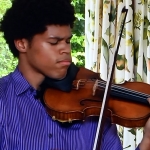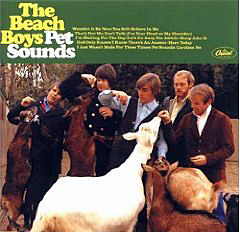Blind Blake: BAHAMIAN SONGS
BLIND BLAKE and the Royal Victoria Hotel Calypsos
‘BAHAMIAN SONGS’
Released 29th June 2009
Megaphone Music
“I was introduced to Blind Blake’s music by Joe Loop, the man who for almost five decades, hung onto Karen Dalton’s earliest known recordings (1962 private recordings now known as THE LOOP TAPES).Joe had a cassette made from his heavy vinyl Blind Blake LP that had broken in two halves. This broken LP is now bound by Scotch tape and gets played whenever Joe needs a new cassette. I am glad I can now offer Joe the first CD ever made out of Blind Blake’s LPs, recorded in the 50s for the tiny ART label. Both Blake’s voice and the sound of these recordings seize you immediately. It has the appeal of 50s folk revival with a genuine West Indies roots feel. This rare snapshot also conveys images of the great art the Grand Hotels in the Colonies have hosted.” Stephane Bismuth, Megaphone Music
Blind Blake was from the 30s to the 60s the singer and leader of the house band at the Royal Victoria Hotel in Nassau, Bahamas. His music was a strange mix of old island classics, more recent calypso compositions and american ballads. His musicians combined jazz guitar licks with vocal harmonies and West Indian rhythms, with the result that his recordings have an easy humor and swing that few musicians from any continent can match. Alphonso Blake Higgs, commonly known as ‘Blind Blake’, was born at Matthew Town, Inagua, Bahamas, in 1915. He was adept at string instruments - ukulele, banjo, tenor banjo, six-string guitar - and also played the piano. He lost his eyesight at the age of sixteen and kept pursuing the goal of a career in music and a unique style, a blend of folksong, calypso and early jazz. His recognition grew from 1935 when he recorded for Philco Radio some of his own songs on the political and social life of The Bahamas.
His most popular song ‘Love, Love Alone’ (”It was Love, Love alone, Cause King Edward to Leave The Throne”) was based on the love affair of King Edward VIII with Wallis Simpson. He was forbidden to play the song upon the arrival of the Duke and Duchess of Windsor to the Colony but was invited to play the song by the Duke at Government House where he received a standing ovation by the Duke and his party. Blind Blake wrote about sixty Goombay songs starting in the 30s including ‘Run Come See Jerusalem’, based on the effects of the 1929 Hurricane, ‘Jones (Oh Jones)’ and ‘J. P. Morgan’.
The traditional song ‘Peas and Rice’, nearly a Bahaman National Anthem, originated during the First World War when the scarcity of imported cooking fats forced the substitution of local coconut oil. And one of the oldest Bahamian song is the tragi-comic ballad ‘John B. Sail’ (later adapted and performed by many artists, notoriously The Beach Boys as ‘Sloop John B.’ on their ‘Pet Sounds’ album). The ‘John B.’ was an old sponger boat whose crew were in the habit of getting merry whenever they reached port. Blake performed for many Heads of State and royalty, such as President John F. Kennedy and PM Harold Macmillan. He performed for tourists at the Royal Victoria Hotel, Dirty Dicks, Blackbeard’s and many other Bahaman hotels and clubs. He gave performances in major american cities. Over the years, many visiting celebrities, such as Mahalia Jackson, Louis Armstrong and Duke Ellington praised Blind Blake for his Bahamian style and his originality. In the 70s and early 80s, Blind Blake’s band was employed by the Ministry of Tourism to play at the Nassau International Airport, giving a musical welcome to arriving visitors. He died in 1985.
This CD is drawn from a series of recordings made in the early 1950s. His band ‘The Royal Victoria Hotel Calypsos’ featured Dudley Butter (guitar, maracas), Chatfield Ward (guitar), Freddie Lewis (lead guitar), George Wilson (bass fiddle), and at times Lou Adams on trumpet. Its popularity with tourists led to them being widely heard in the US, and they became an inspiration to many folk revival musicians. Josh White and Johnny Cash covered ‘Delia’, Pete Seeger ‘Foolish Frog’, Dave Van Ronk ‘Yas, Yas, Yas’, and ‘Run, Come See Jerusalem’ was done by dozens of groups, not to mention Blake’s influence on Harry Belafonte.
Shake’s Take
The first thing we noticed with this recording was the extraordinary sound quality, which hits you immediately with the opening track, ‘Love, Love Alone.’ Blake’s voice is easy and flows like the finest rum, while his guitar has a distinct bass tone, with a rhythm that sounds very Charleston. The second track provided the biggest shock. It was of course the song on which the Beach Boys based ‘Sloop John B’ from the PETSOUNDS album. In fact we played both songs back-to-back on our radio show to illustrate the point. ‘J.P. Morgan’ is a fine illustration of the lyrical quality of many of the songs here, and their comic nature. Even quite serious topics are covered with a light touch. Vocal harmonies and occasionally extended instrumental introductions I’m pretty sure have influenced later musicians. The bluesy ‘Yes, Yes, Yes’ is a supreme example of this also where the famous Dillinger is mentioned, while the ‘Yes, Yes, Yes’ is a euphanism for an arse… ‘Never Interfere With Man And Wife’ is another slice of comedy played in pure Calypso style. ‘The Cigar Song’ is a superb drinking song played in Delta Blues style where the price of the cigar rises each time the guy drinks in a better quality bar, until he finally returns home to Nassau where the price drops way down… ‘Run Come See Jerusalem’ is about a big storm that hits and sinks a boat with all lives lost; it’s darkness and light at the same time. ‘Delia Gone’ has a distinctly jazzy vibe and actually sound more modern than it is.
There’s 28 songs here and I can imagine the album being played non-stop at a themed events. But it’s also a supreme example of how music has evolved and how artists and songs like these have played their part. Another interesting aspect is the way Blind Blake used news and observation as the basis for many songs - something that rarely happens today. A Revelation.
4/5
|
|

|

Bellowhead |
LATEST GALLERY IMAGES

The Kanneh-Masons 
Sting 2025 |
|
|



